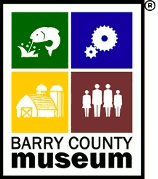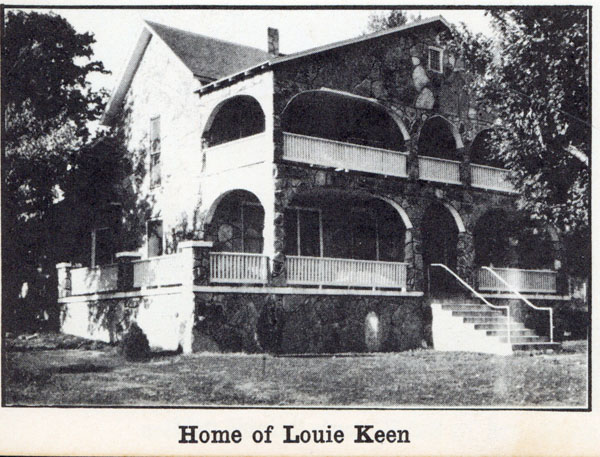McMurtry Spring
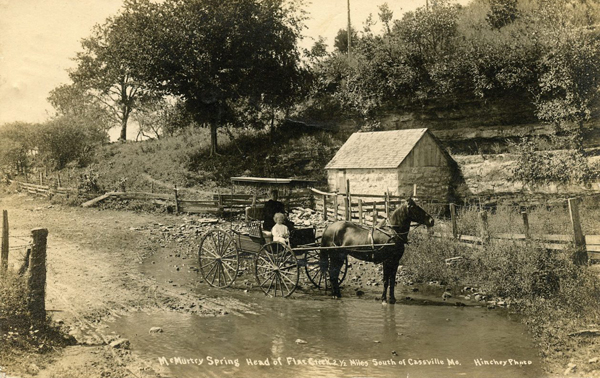 |
McMurtry Spring about 1910 |
From McMurtry Spring National Register of Historic Places Registration: The spring is named after Price McMurtry (abt. 1795–1854) whose family settled on land near the spring when the Cherokee processions passed through Barry County in 1837–1839. Price McMurtry was born in Kentucky and married Barbara Stone (1798–1865) about 1815. The McMurtry family left Kentucky in the late 1820s and settled for a time in St. Francis County in the eastcentral portion of what was then Arkansas Territory. The family was there when the 1830 federal census was undertaken. According to Goodspeed, "The McGlothlins, McMurtrys, Georges, Locks, Howertons, Burtons, Masons, Harbins, Peoys and Johnsons were all in Barry County about the time of its organization, in 1835. An 1832–1835 date for the McMurtrys arrival in what became Barry County accords with the information provided in the 1850 federal census listing the birthplaces and ages of two of Price and Barbara McMurtry's children Andrew J. McMurtry, listed as being 18 years of age in the 1850 census, was born in Arkansas, whereas Francis M. McMurtry, listed as being 12 years of age, was born in Missouri. The 1840 federal census indicates that the McMurtry family consisted of eight males and four females. |
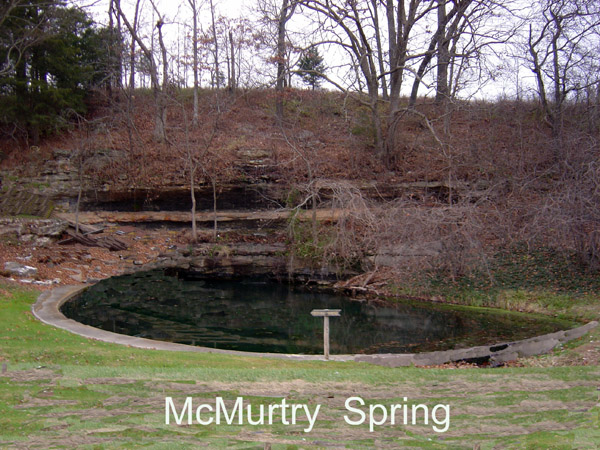 |
McMurtry Spring, campsite on the Trail of Tears and Old Wire Road |
The Cherokee camped near McMurtry Spring as a regular stop on their sojourn to Indian Territory. Its location along the labeled "Road from Fayetteville, Arkansas to Springfield, Missouri" is evident on the GLO survey plats for the four townships that intersect near the spring. During much of the nineteenth century and the very early twentieth century, McMurtry Spring must have been well known to people travelling by wagon through the area. It provided fresh water for travelers and their horses, mules, or oxen, and camping overnight nearby was common for Euro-American people conducting business in Cassville, Monett, or even Springfield to the northeast, or Washburn, Seligman, and other destinations further to the south and southwest in Arkansas. On their return home, they would stop, quench their thirst, rest, eat, and again camp overnight nearby. Nineteenth-century historic records indicate that other travelers camped there too. Most campers were from the south part of the county, but sometimes they included people from Arkansas and Oklahoma. Unfortunately, little is known about the travails of most detachments that traveled along the Northern Route since only three diaries or journals are available for just two detachments. These consist of the Lt. B. B. Cannon diary for the initial pro-treaty detachment and the journals of physician Dr. William I. I. Morrow and clergyman Reverend Daniel S. Butrick for one of the last anti-treaty detachments (the 11th in temporal order of the 13 anti-treaty groups) conducted by Richard Taylor, then President of the National Committee of the Cherokee Nation. Of these journals, those of Lt. Cannon and Rev. Butrick are the most informative since Dr. Morrow typically left the train to have supper with white residents along the road and sleep overnight in their cabins. In fact, Morrow noted the day before reaching McMurtry Spring that he "stayed in camp the first time since I left Gore's (?) in [southern] Illinois." However, Morrow does provide anecdotal information about some of the settlers encountered along the way. The journal of Lt. B. B. Cannon contains the following entries: Dec 22nd 1837 Buried Goddard's Grandchild. Marched at 8 O'C A.M. halted at McMurtee's [sic], 3 O'C P.M. encamped and issued corn & fodder & beef. 15 miles to day. Dec 23rd 1837 Buried Rainfrog's daughter (Lucy Redstick's child). Marched at 8 O'C A.M. halted at Reddix, 3 O'C P.M. encamped and issued corn & fodder & beef. 10 miles to day. Two additional invoices for the Lt. B. B. Cannon detachment dated December 23, 1837 indicate that Paymaster John C. Reynolds paid for 403 pounds of beef, 31 bushels of corn "for forage of horses of a detachment of Cherokee on their way West," and 497 bundles of "fodder for same" from Price McMurtry. McMurtry also was paid $.50 "for quarters [lodging] and subsistence for wagoner [Paymaster Reynolds] conveying public funds, etc. for a detachment of Cherokees." Butrick's diary contains a more lengthy discussion of weather conditions and the Cherokees overall weariness as the 11th Detachment approached and left the McMurtry Spring area, arriving there on March 24, 1839. Saturday, March 23, 1839 – Mrs. Butrick and myself left the detachment & travelled about 26 miles to a Mr. Mason's, and put up for the sabbath. Our host was from Tennessee, has a pleasant family, and good accommodations for travelers. Sabbath, March 24, 1839 – The morning is pleasant, but the prospect is that we can only rest alone, without any opportunity of attending public worship. We have a room by ourselves and everything is still and quiet about us. We hope, if the Lord will; before another holy Sabbath to be in the country toward which we have been so long travelling. O how kind has the Lord been in preserving us thus far, on this tedious journey; and now what can we hope or desire but his kind direction and his supporting Presence. O for faith to confide only in Him. Monday, March 25, 1839 – We travelled with the detachment about 20 miles. The day was windy and dry so that the dust was often troublesome. Early in the evening it began to thunder, and we had just composed ourselves to sleep in our little carryall, when we were awakened by loud peals of thunder & a heavy rain falling upon us. One shower followed another so that we had but little sleep. The high trees, however, hanging over us, were not commissioned to do us any harm. On the same day that Butrick and his wife travelled the 26 miles to Littleberry Mason's to prepare for the Sabbath, Dr. Morrow travelled 12 miles to John Lock's on Flat Creek and then the next day some 15 miles up Flat Creek to the "McMurtries". |
Keen Farm at McMurtry Spring in 1937 |
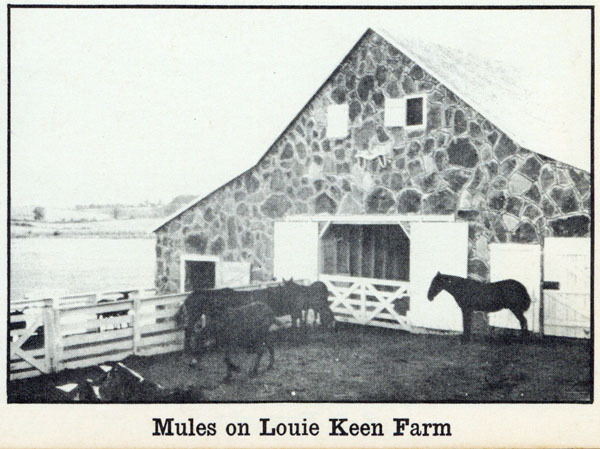 |
Mules raised at Keen Farm in 1937 |
| "Fatal Affray" in 1868 at McMurtry Spring |
